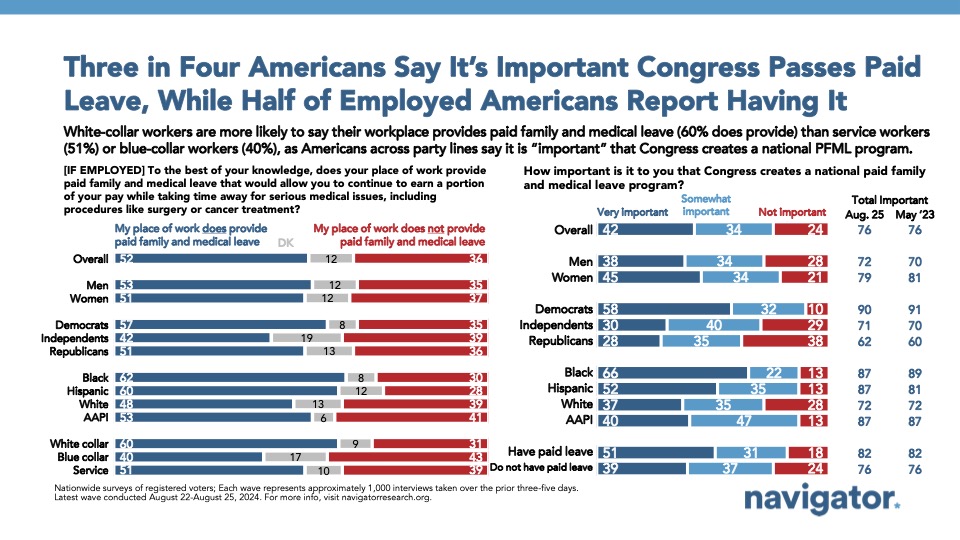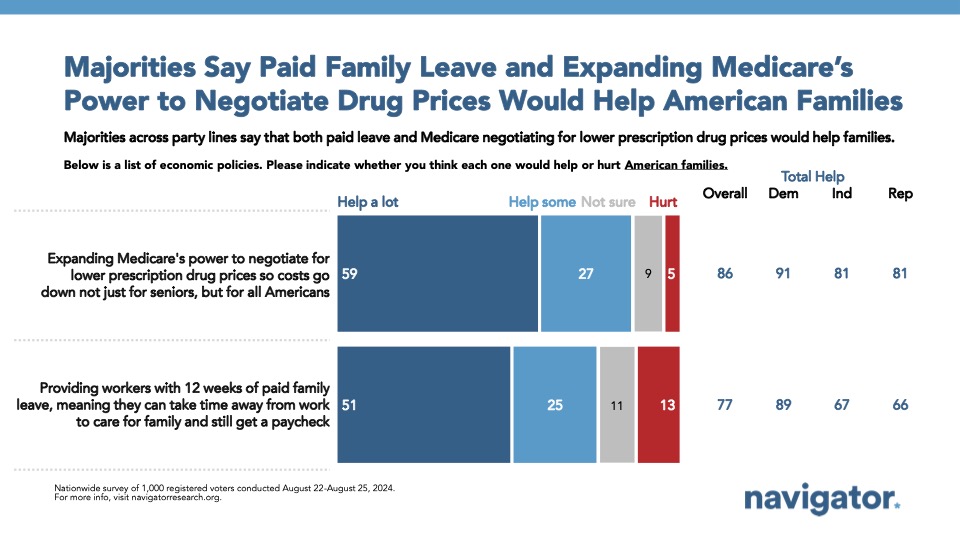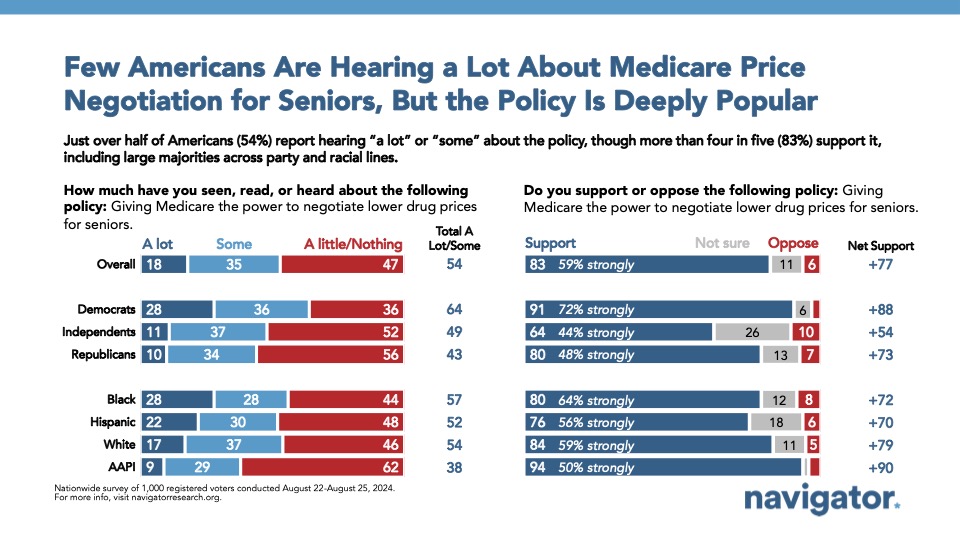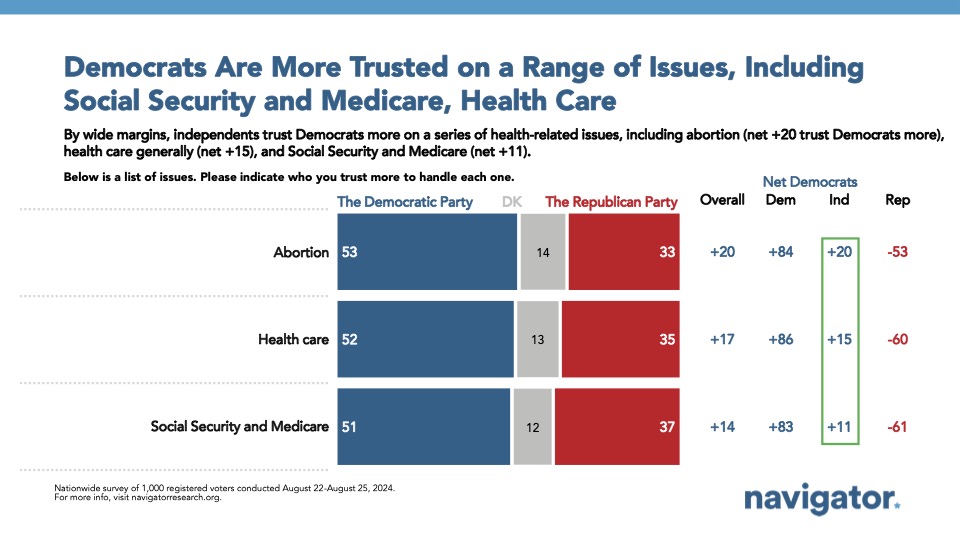Poll: National Paid Leave
This Navigator Research report contains polling data on the latest perceptions of a national paid leave program and expanding Medicare’s powers, including the share of Americans who believe these policies would be helpful for families, who is more likely to support these policies, and who is more trusted to handle the issue of Medicare and Social Security.
Three in four say it is important that Congress creates a national paid family and medical leave program.
Three in four Americans say it is important that a national paid family and medical leave plan is passed, with only half of employed Americans saying their workplace provides a paid leave program. 76 percent of Americans say it is important that Congress create a national paid family and medical leave program, including 90 percent of Democrats, 71 percent of independents, and 62 percent of Republicans. Despite overwhelming popularity, only half of employed Americans say their employer provides paid family and medical leave (52 percent).
- Four in five who say their work provides paid family and medical leave believe it is important for Congress to create a national paid leave plan (82 percent), and three in four who say their work does not provide paid family and medical leave say it is important that Congress creates a national paid leave program (76 percent).
A national paid family and medical leave program is widely supported.
Over three in four believe a national paid leave program would be helpful for American families, with a majority believing the Democratic Party would be more likely to support it. 77 percent of employed Americans believe providing workers with a paid family and medical leave program would be helpful for American families. By a 44-point margin, Americans believe the Democratic Party is more likely to support a paid leave program than Republicans (68 percent believe Democrats more likely – 24 percent believe Republicans more likely), including independents who believe Democrats are more likely to support paid leave by a 47-point margin (62 percent believe Democrats more likely – 15 percent believe Republicans more likely).
- 86 percent of Black Americans and 79 percent of Hispanic Americans say a paid family and medical leave program would be helpful for American families.
- By a margin of 15 points, women are more likely than men to believe a paid leave program would be helpful for American families (84 percent of women – 69 percent of men).
Expanding Medicare’s power to negotiate prescription drug prices is overwhelmingly popular.
Over four in five support expanding Medicare’s power to negotiate lower drug prices in order to lower costs for all Americans. 86 percent say that expanding Medicare’s powers to negotiate drug prices for seniors, bringing down costs for all Americans, would be helpful for American families, including 59 percent who believe it would help “a lot.” Similarly, 81 percent believe expanding Medicare’s negotiating power would be helpful specifically for families like their own. Democrats are more trusted than Republicans on the issue of Medicare and Social Security by a 14-point margin (51 percent trust Democrats – 37 percent trust Republicans), and two in three believe expanding Medicare’s powers is more likely to be a policy supported by the Democratic Party (66 percent believe Democrats more likely – 23 percent believe Republicans more likely).
- 91 percent of Democrats and 81 percent of Republicans and independents believe expanding Medicare’s power to negotiate lower drug prices would be helpful for American families.
- 87 percent of Americans working jobs in the service industry believe expanding Medicare’s power to negotiate prescription drug prices would be helpful specifically for American families like their own.




